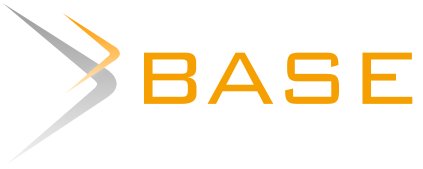Ethical Issues on Utilization of AI, Robotics and Automation Technologies
DOI:
https://doi.org/10.18034/ajhal.v7i2.521Keywords:
Artificial Intelligence, technological singularity, automation, robotics, privacyAbstract
The fast technological advancements in machine intelligence and automation may also arrive with risks and some negative effects on employees, firms, and society at large. Currently, both end-users, scientists, and practitioners have acknowledged the need for machine assistance and also welcome consideration for a robust ethical strategy that will allow a safe application and usage of improved technologies. Artificial Intelligence related ethics has been presented and considered from various standpoints and views. This paper furthers on the subject. Potential ethical issues are envisaged in the area of machine end-user perceptions, privacy, accountability, and the robot/ human rights, design of ethical machines, and technological singularity. It, therefore, possesses the question. What are the current ethical issues with the use of machines? The study adopted a quantitative and qualitative approach to drawing conclusions from the thematic and descriptive analysis. The result shows that majority of the respondents were males 46 (65.7%) while 24(34.3%) were females. They are mainly literates/ Majority 49(70%) are from the private firm and come majorly from the Asian continent. The majority of the respondents view that ethical consideration is necessary for machine and automation design, the machine-human relationship should be improved. Their privacy should be instituted while they consider technology singularity as a severe issue and desire the creation of ethical machines. Following this result, the study documents policy recommendations.
Downloads
References
Ashrafian, H. (2014). AIonAI: a humanitarian law of artificial intelligence and robotics. Science and Engineering Ethics. pp1–12. DOI: https://doi.org/10.1007/s11948-013-9513-9
Belloni, B, Berger Boissier, O., Bonnet, G., Bourgne, G., Chardel, P. A., Cotton, J. P. (2015). Dealing with ethical conflicts in autonomous agents and multi-agent systems. Papers from the 2015 AAAI Workshop: Artificial Intelligence and Ethics. pp21–7.
Bostrom, N. and Yudkowsky, E. (2011). The ethics of artificial intelligence. Cambridge Handbook of Artificial Intelligence. pp1–20
Bryson, J. J. (2016). Patience is not a virtue: intelligent artefacts and the design of ethical systems. Association for the Advancement of Artificial Intelligence. pp1–18.
Dogan, E., Chatila, R., Chauvier, sS. and Evans, K. (2016). Ethics in the design of automated vehicles: the AVEthics project. Proceedings of the 1st Workshop on Ethics in the Design of Intelligent Agents (EDIA). 2016. pp2–17.
Donepudi, P. K. (2015). Crossing Point of Artificial Intelligence in Cybersecurity. American Journal of Trade and Policy, 2(3), 121-128. https://doi.org/10.18034/ajtp.v2i3.493 DOI: https://doi.org/10.18034/ajtp.v2i3.493
Donepudi, P. K. (2018a). AI and Machine Learning in Retail Pharmacy: Systematic Review of Related Literature. ABC Journal of Advanced Research, 7(2), 109-112. https://doi.org/10.18034/abcjar.v7i2.514 DOI: https://doi.org/10.18034/abcjar.v7i2.514
Donepudi, P. K. (2018b). Application of Artificial Intelligence in Automation Industry. Asian Journal of Applied Science and Engineering, 7(1), 7-20. http://doi.org/10.5281/zenodo.4146232
Donepudi, P. K. (2020). Crowdsourced Software Testing: A Timely Opportunity. Engineering International, 8(1), 25-30. https://doi.org/10.18034/ei.v8i1.491 DOI: https://doi.org/10.18034/ei.v8i1.491
EU. (2017). Robots: Legal Affairs Committee calls for EU-wide rules. EU Press Release. 12 January. Available at: www.europarl.europa.eu/news/en/news-room/20170110IPR57613/robots-legal-affairs-committeecalls-for-eu-wide-rules.
Excell, P. S. and Earnshaw, R. A. (2015). The future of computing – the implications for society of technology forecasting and the Kurzweil singularity. 2015 IEEE International Symposium on Technology in Society (ISTAS) Proceedings. pp1–6 DOI: https://doi.org/10.1109/ISTAS.2015.7439406
Frude, N. and Jandrić, P. (2015). The intimate machine 30 years on. E-Learning and Digital Media. Vol 12, No 3–4. pp410–24. DOI: https://doi.org/10.1177/2042753015571830
Johnson, D. G. (2015). Technology with no human responsibility? Journal of Business Ethics. Vol 127, No 4. pp707–15. DOI: https://doi.org/10.1007/s10551-014-2180-1
Kinne, E. and Stojanov, G. (2014). Grounding drones’ ethical use reasoning. Association for the Advancement of Artificial Intelligence. pp231–5.
Lutz, C. and Tamò, A. (2015). RoboCode ethicists – privacy-friendly robots, an ethical responsibility of engineers? Proceedings of the 2015 ACM SIGCOMM Workshop on Ethics in Networked Systems Research. pp27–8. DOI: https://doi.org/10.1145/2793013.2793022
Luxton, D. D. (2014). Artificial intelligence in psychological practice: current and future applications and implications. Professional Psychology: Research and Practice. Vol 45, No 5. p332. DOI: https://doi.org/10.1037/a0034559
Metzler, A. A., Lewis, L. M. and Pope, L. C. (2016). Could robots become authentic companions in nursing care? Nursing Philosophy. Vol 17, No 1. pp36–48. DOI: https://doi.org/10.1111/nup.12101
Michelfelder, D. P. (2011). Dirty hands, speculative minds, and smart machines. Philosophy and Technology. Vol 24, No 1. pp55–68 DOI: https://doi.org/10.1007/s13347-010-0009-0
Reeves, J. (2016). Automatic for the people: the automation of communicative labor. Communication and Critical/ Cultural Studies. Vol 13, No 2. pp150–65. DOI: https://doi.org/10.1080/14791420.2015.1108450
Russell, S., Hauert, S., Sltman, R. and Veloso, M. (2015). Ethics of artificial intelligence. Nature. Vol 521, No 7553. pp415–18. DOI: https://doi.org/10.1038/521415a
Torras, C. (2015). Social robots: a meeting point between science and fiction. MÈTODE Science Studies Journal. Vol 5, No 0. pp111–15.
Zeng, D. (2015). A letter from the editor: AI ethics: science fiction meets technological reality. IEEE Intelligent Systems. May/June. pp1–5. DOI: https://doi.org/10.1109/MIS.2015.53
--0--















